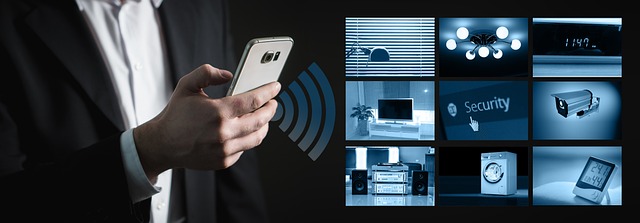In today’s world, where safety and security are paramount, protecting our homes has become a top priority. This is where home security cameras play a crucial role. They serve as vigilant guardians, providing round-the-clock surveillance and peace of mind. Let’s delve into the intricacies of home security cameras to understand their significance and how to make informed choices when setting up a surveillance system for your home.
Understanding the Importance of Home Security Cameras
Home security cameras are more than just electronic devices; they are essential tools for safeguarding our homes and loved ones. They act as a visual deterrent to potential intruders, significantly reducing the risk of burglary and other crimes. Moreover, they offer remote monitoring capabilities, allowing homeowners to keep a watchful eye on their property even when they’re away. In the unfortunate event of a break-in, security cameras for home provide invaluable evidence for law enforcement, aiding in investigations and increasing the likelihood of recovering stolen items.
Exploring Different Types of Home Security Cameras
When it comes to home security cameras, there are various types to choose from, each catering to specific needs and preferences:
- Indoor Cameras: Designed for use within the confines of your home, indoor cameras are ideal for monitoring living spaces, bedrooms, and other interior areas.
- Outdoor Cameras: Built to withstand harsh weather conditions, outdoor cameras are rugged devices capable of monitoring entry points, driveways, and outdoor spaces.
- Wireless Cameras: Offering flexibility in installation, wireless cameras eliminate the need for cumbersome wiring, making them easy to set up and relocate as needed.
- Wired Cameras: Known for their reliability, wired cameras are directly connected to power sources and recording devices, ensuring continuous surveillance without the risk of signal loss.
Determining Your Camera Requirements
The number of cameras needed for your home depends on several factors, including the size of your property and the specific areas you wish to monitor. Conduct a thorough assessment of your home’s layout and identify high-traffic zones, entry points, and areas of vulnerability to determine the optimal placement and quantity of cameras required.
Key Considerations When Purchasing
Before investing in a home security camera system, consider the following factors to ensure you select the right equipment for your needs:
- Field of View: Opt for cameras with a wide field of view to minimize blind spots and maximize coverage.
- Resolution: Higher resolution cameras provide clearer and more detailed footage, enabling easier identification of individuals and objects.
- Night Vision: Choose cameras equipped with infrared LEDs for enhanced visibility in low-light conditions or during nighttime surveillance.
- Motion Detection: Look for cameras with motion sensors that trigger recording when movement is detected, conserving storage space and alerting you to potential threats.
- Two-Way Audio: Consider cameras with two-way audio capabilities, allowing for communication between homeowners and individuals within the camera’s vicinity.
Setting Up Your Cameras
Proper installation is crucial to ensure optimal performance and coverage from your security cameras:
- Location Confirmation: Carefully assess the areas you intend to monitor and ensure your cameras provide comprehensive coverage of key areas.
- Strategic Positioning: Position cameras at optimal heights and angles to capture clear, unobstructed footage and minimize blind spots.
- Secure Mounting: Utilize appropriate mounting equipment to securely attach cameras to walls, ceilings, or other surfaces, preventing tampering or displacement.
- Power and Connectivity: Ensure reliable power sources and internet connectivity for seamless operation of your cameras, whether they are wired or wireless.
Related-
◈ How to install CCTV cameras?
◈ Why you should install CCTV Cameras on Your Property
Monitoring and Recording
Once your cameras are set up, it’s essential to understand how to monitor and record footage effectively:
- Live Streaming: Many cameras offer live streaming capabilities, allowing homeowners to monitor their property in real time via smartphones or computers.
- Cloud Storage: Consider utilizing cloud storage services for secure off-site backup of recorded footage, providing redundancy and protection against data loss.
- Local Storage: Alternatively, opt for local storage solutions such as DVRs or memory cards for on-site recording, tailored to your specific needs and preferences.
- Event-Based Recording: Choose between continuous or motion-triggered recording modes to conserve storage space and focus on capturing relevant footage during security events.
Privacy and Security Concerns
While home security cameras enhance safety and security, it’s essential to address privacy and security concerns:
- Data Encryption: Prioritize cameras with robust security features and encryption protocols to protect video feeds from unauthorized access or interception.
- Password Management: Create strong, unique passwords for your camera systems and regularly update firmware to safeguard against potential security breaches.
- Regular Maintenance: Maintain camera cleanliness and functionality through routine checks and maintenance, ensuring optimal performance and longevity of your surveillance system.
Optimizing Your Home Security System
- Integration: Integrate your cameras with other security systems or smart home devices for comprehensive protection and enhanced functionality.
- Regular Review: Routinely review camera footage to identify potential security threats or suspicious activity, taking proactive measures to address any issues promptly.
- Visible Placement: Display cameras prominently to deter potential intruders and increase awareness of surveillance, reinforcing the security presence around your home.
Conclusion
Home security cameras are indispensable tools for safeguarding your home and ensuring the safety of your loved ones. By understanding the various types, features, and considerations involved, you can make informed decisions when selecting and setting up a surveillance system for your home. Prioritize privacy, security, and effective monitoring to create a safe and secure environment for your family.


